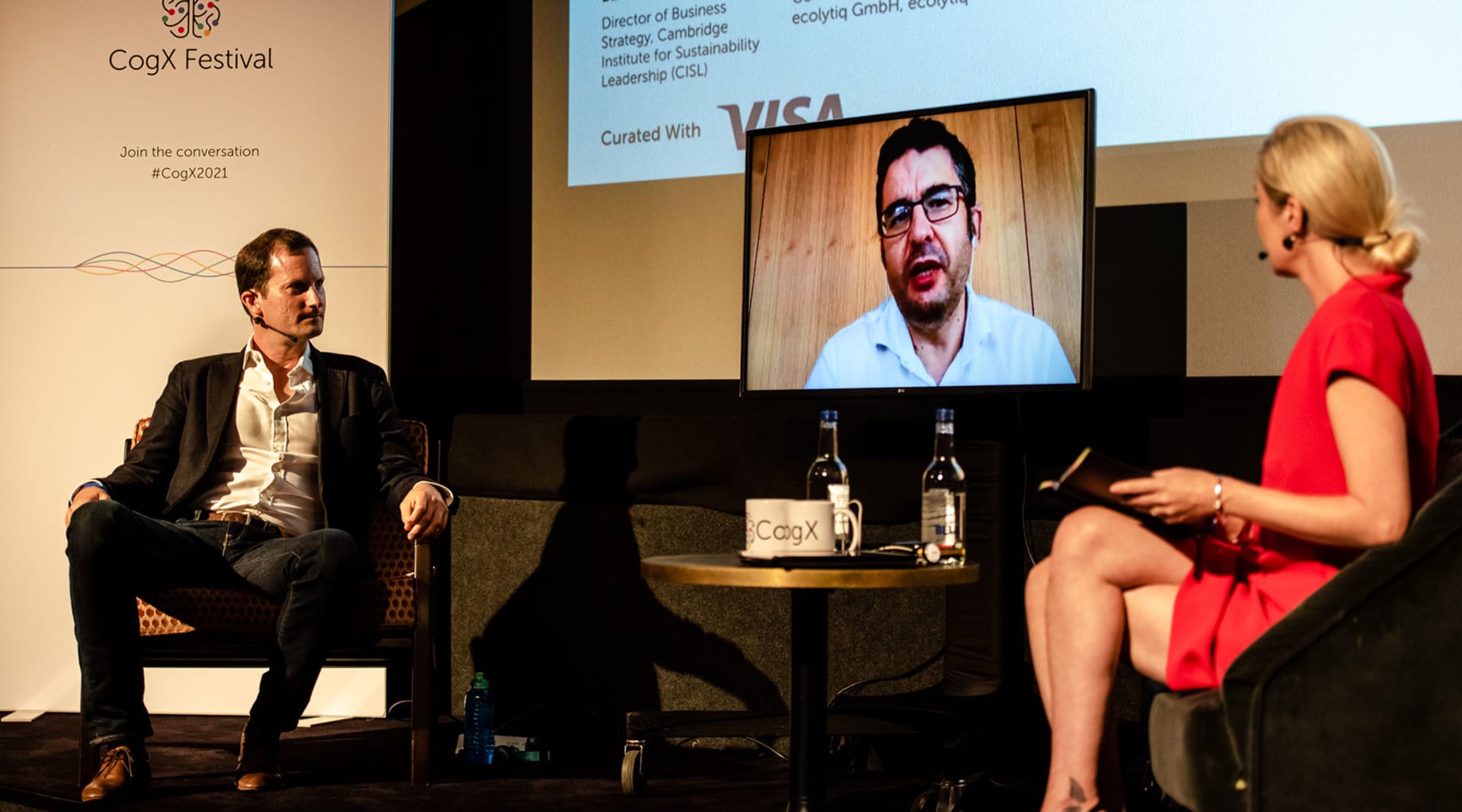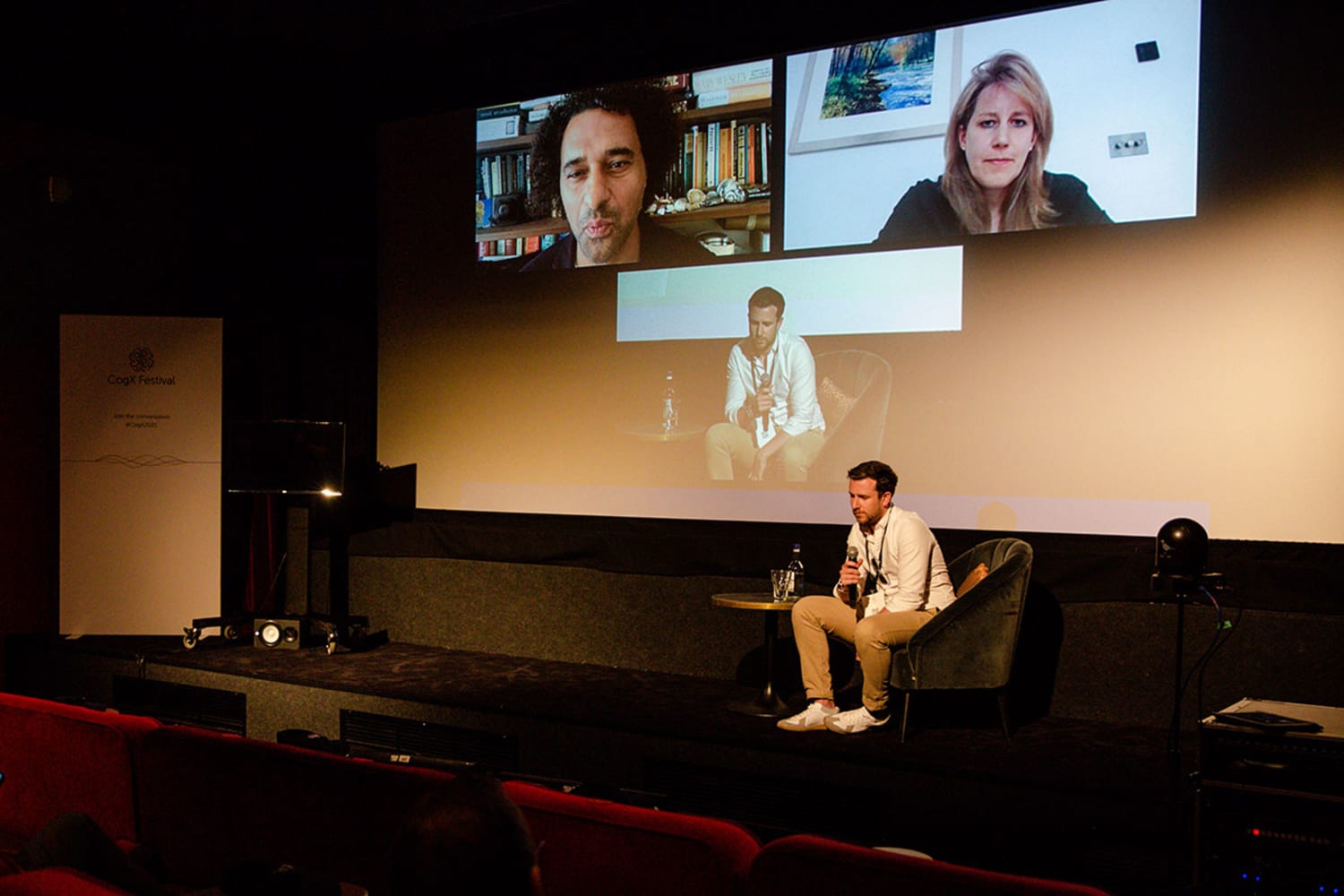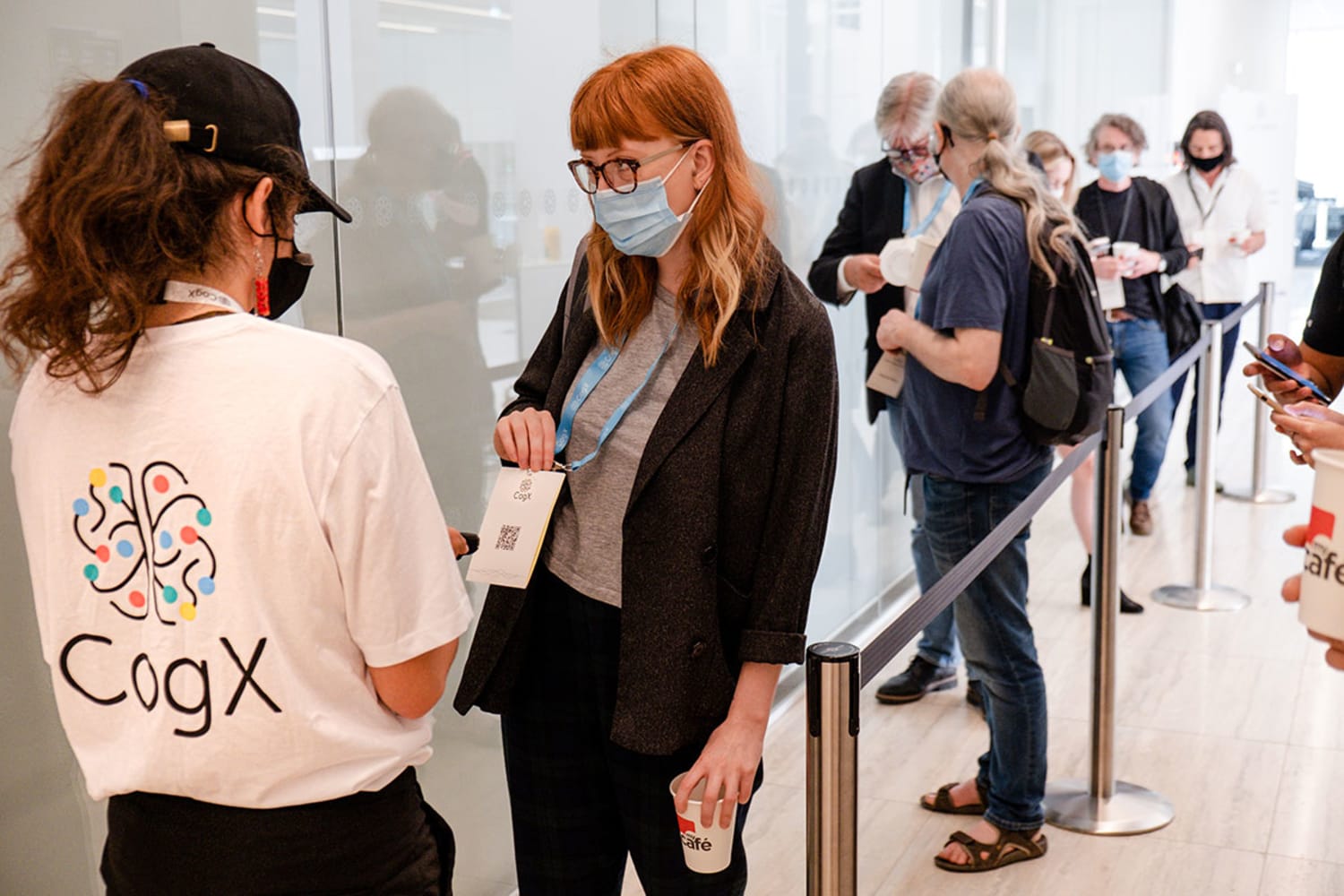The fifth annual CogX Festival devoted to transformational technology took place last week in London’s Kings Cross and also virtually, delivering a glimpse of our hybrid ‘phygital’ future.
Claiming to be the first hybrid event of its kind, it boasted three physical and 15 virtual stages, not to mention 5,000 in-person attendees alongside a 100,000-strong virtual audience in an impressive feat of event logistics.
1,000 speakers across the 18 stages wrestled with this year’s theme: “How do we get the next ten years right?” and many of this year’s talks reflected the inherent tensions between the benefits and challenges in tech. A great enabler, tech has also concentrated power and influence in the hands of a few. But thanks to emerging exponential technologies, could that be set to change?
Here’s our round-up of three emerging trends from this year’s festival. In some respects, they point to the potential for a more equitable and democratic era in tech, but major human and ethical challenges remain.
Democra-tech
The decentralization of technology platforms and spaces is helping to level the playing field in science and creativity and provide safe spaces online for minority communities.
It is now almost trite to point out the pandemic’s role in highlighting inequalities, but a fascinating discussion titled "Indiana Jones & the Variant Trackers" offered a fresh take. In the session, Professor Sharon Peacock, who leads the COVID-19 Genomics UK Consortium (COG-UK), a global pioneer in identifying and sequencing new variants of SARS-CoV-2, called for the democratization of access to sequencing technology and data.
Peacock explained that understanding pathogen genomics remains a highly specialized field requiring deep expertise, thus creating inequities in access to important data that can help fight SARS-CoV-2, as well as other transmissible diseases like Ebola. A solution may come in the form of a black box that will generate results that could be understood by anyone without genome analysis expertise. Such a solution, used in tandem with AI, would level the playing field in fighting transmissible disease and “could completely revolutionize the way we understand pathogen genomics."
Tech is also helping to level the playing field in the world of fine art. The sale of digital artworks via Blockchain-based non-fungible tokens (NFTs) is creating a major buzz. Panelists at a session entitled "NFTs and the Future of Digital Art" discussed the potential of NFTs to drive value for artists and creators by negating the need for traditional gatekeepers and middlemen.
Masdak Sanii, the co-founder and CEO of the global online youth art community Avant Arte, believes NFTs could have a transformative impact by decentralizing the industry as well as tackling "the opacity that is baked into the system." Sanii also perceives the potential for NFTs to democratize art ownership, providing "an entry point for thousands and thousands of people who have never considered themselves art collectors, to become owners of a cultural object," alongside ushering in a new era of transparency for the artists themselves.
Browser Tracking Protection enabled. Unable to display content.

At the Queer Tech: Designing for Diversity panel, Phoenix Andrews, policy fellow at the Tony Blair Institute for Global Change, described how LGBTQIA and other minority communities are "bending" online spaces to better suit their unmet needs. According to Andrews, "minorities can be oppressed more on the 'big open internet' and therefore queer people and people of color are going back to smaller spaces or side spaces or private chats in order to get power back." While gay and queer Twitter exist, Andrews pointed out that they are not particularly welcoming places, especially for the trans community. Describing the phenomenon of queering spaces, Andrews pointed to the example of Discord servers, which have been embraced by queer communities for chatting and information sharing.





